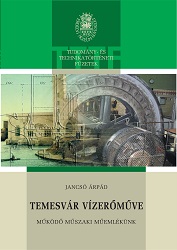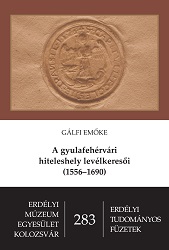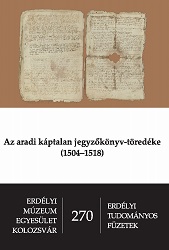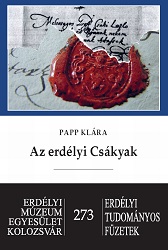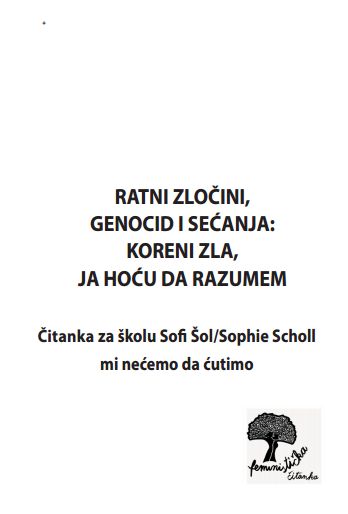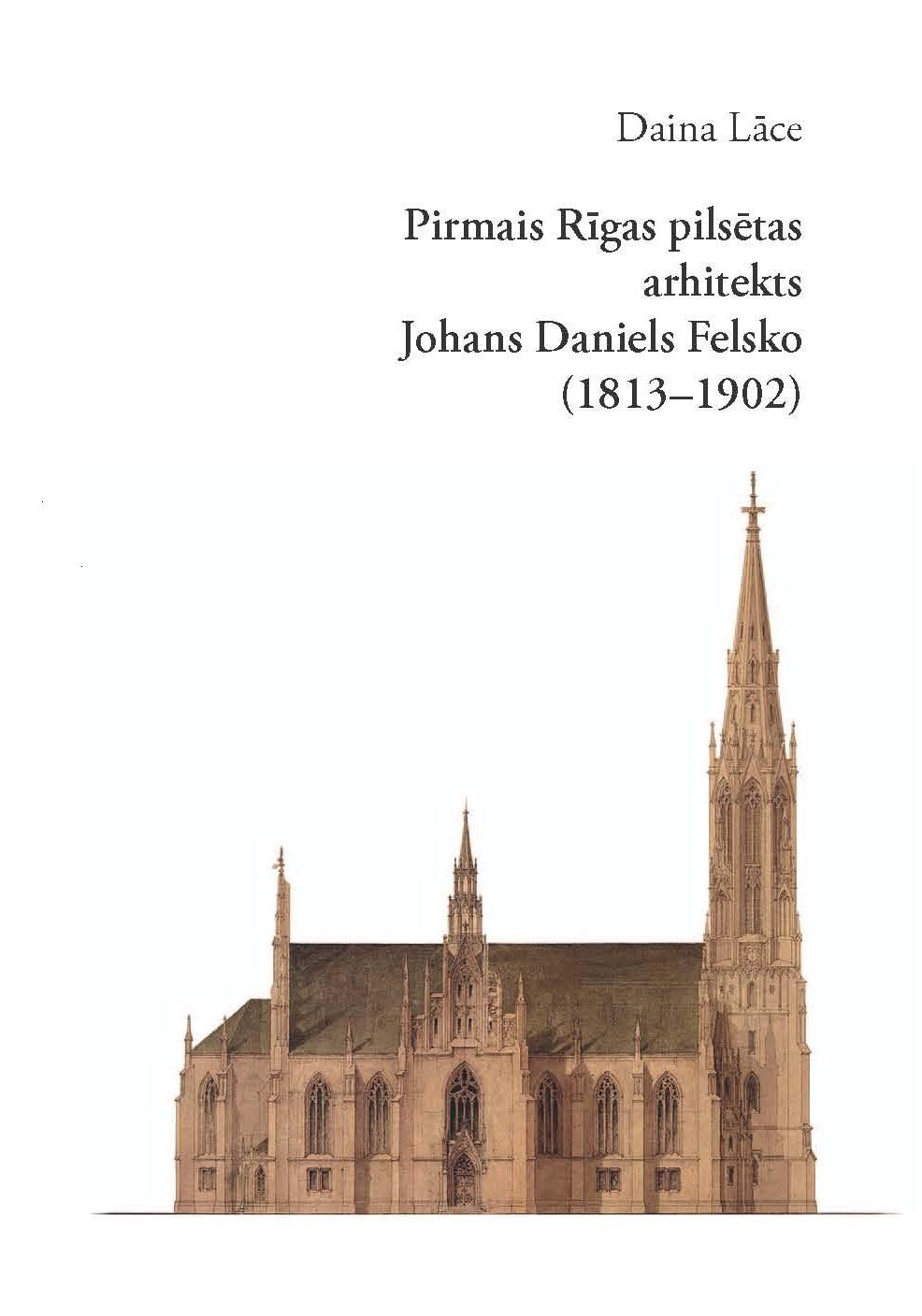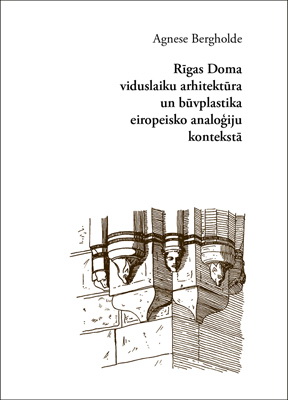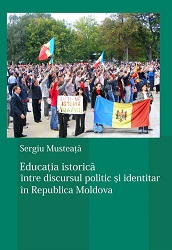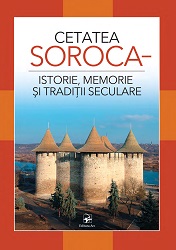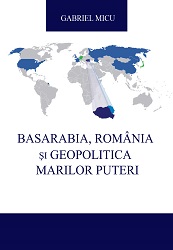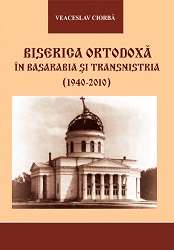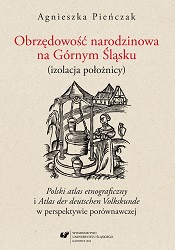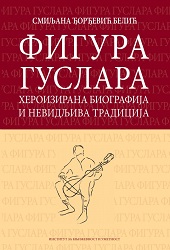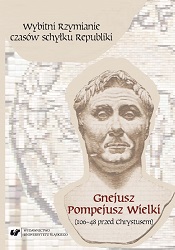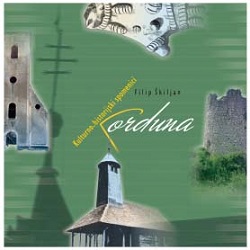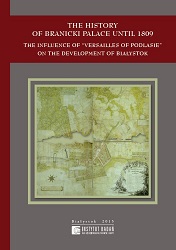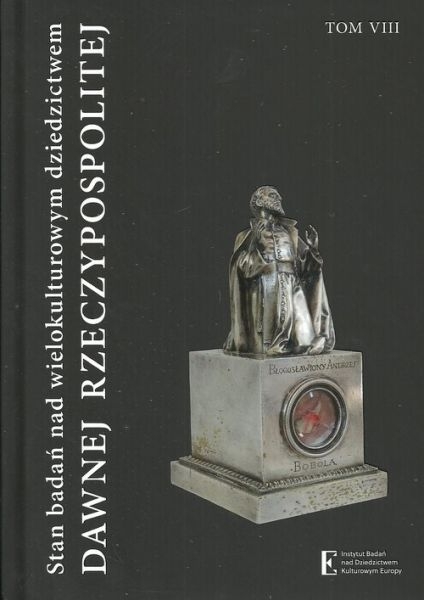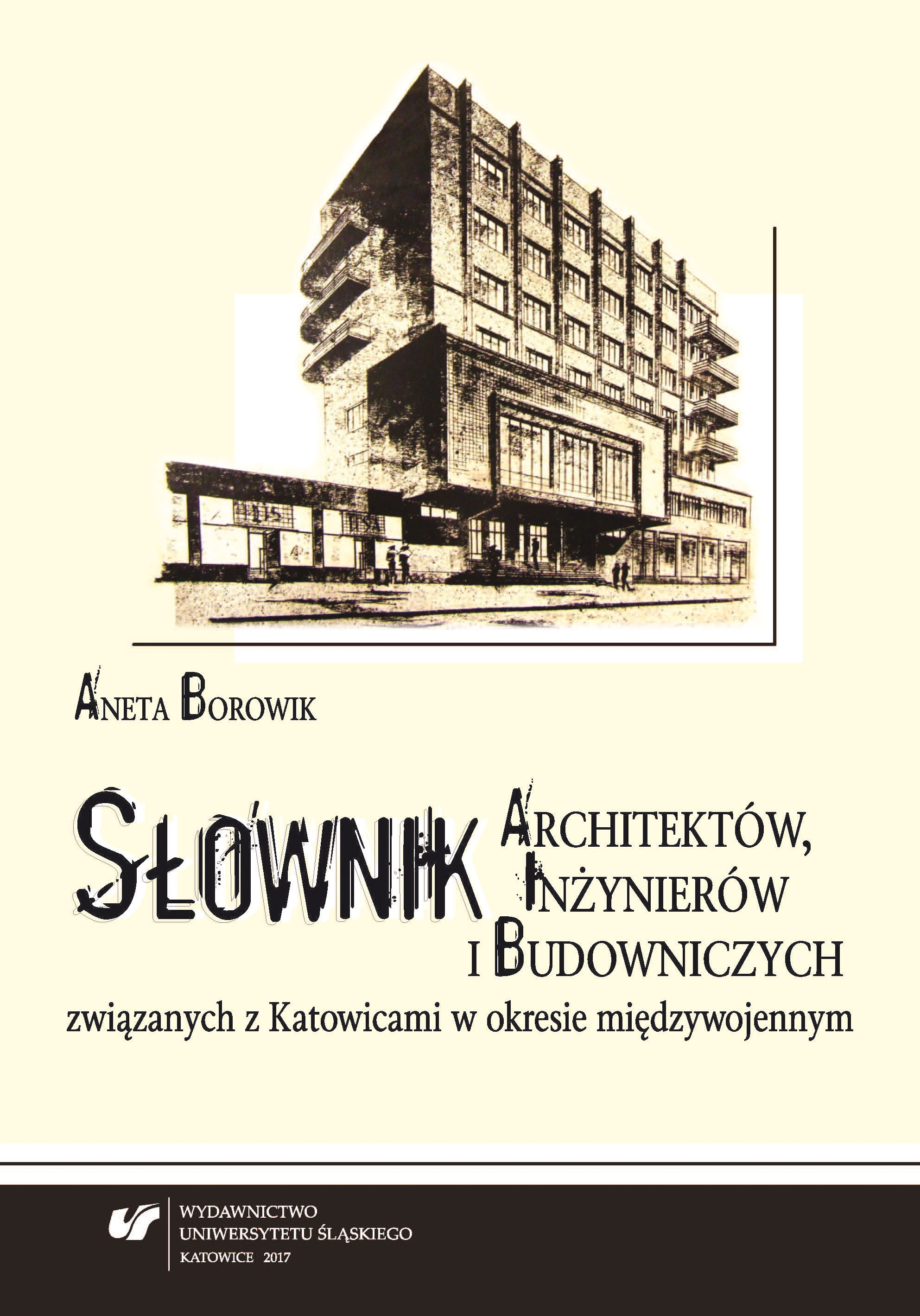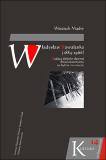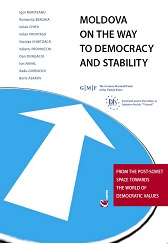Author(s): Klára Papp / Language(s): Hungarian
The monograph gives an overview of the Transylvanian branch of the Csáky family from the mid-seventeenth century up to 1742, the extinction of the male line and examines the efforts of the female line, until the Csákys’ possibilities to preserve their name, rank and landed estates are traceable, that is, the middle of the nineteenth century. The first chapters of the volume discuss the great seventeenth-century predecessors of the Csáky, who moved from Transylvania to the Kingdom of Hungary and established, then strengthened their landed possessions and political authority. Especially, István Csáky, remembered as „Great” in family tradition, who was a General of the Principality of Transylvania and Captainin-Chief of Prince István Bocskai, as well as his sons, two talented politicians, István Csáky, Lord Chief Treasurer and László Csáky, Lord Chief Justice, both belonging to the circle of Lord Palatine Esterházy, who based the prestige of the Kingdom of Hungary branch.The family correspondence describes the relationship of Lord Chief Treasurer as contradictory with his children, of whom he had a good opinion of only the middle son of the same name, István, the elder son, Francis, and the younger, László turned against him. Concerning their political views and relations all the three young gentlemen went off the path set by their father, the two older ones maintained good relations with Miklós Zrínyi, the younger held together with the opponent of the father, György Rákóczi II.The Transylvanian branch marks the third son of István Csáky, Lord Chief Treasurer, László and his descendants, who returned to the Transylvanian lands, and wished to found their future upon farming and their estate revenues. One of the basic tasks of the research was to explore the history of the Transylvanian branch. Historical literature has so far much neglected the denominator László Csáky and his political and military role, furthermore, the fate of the descendants, their functions in Transylvanian political life, and the situation of the family holdings has almost never been seen in historical scholarship. László Csáky could not administer his Transylvanian estates for long since he lost a good part of his holdings because of his role in the Béldiconspiracy against Prince Apafi, and was only able to return from his Turkish captivity through Poland and Vienna during the great anti-Ottoman war of the end of the century, taking on a military task on the side of the Habsburgs. Contemporary diary entries show how deeply he was resented by the Transylvanians, which he was only able to change working hard for long years. István, the son of the Transylvanian László Csáky was appointed Főispán (sheriff) of County Kolozs in 1699, after the death of his father.Together with his younger brother, László he was striving to regain their Transylvanian holdings. It is now unanimous that in the War of Independence led by Francis II Rákóczi the sons of the Transylvanian László Csáky both László (who died in 1708) and István – who had formerly been a follower of Imre Thököly – supported Prince-Governor Rákóczi, from whom they hoped for and did in fact receive landed donations.Of the two Csáky brothers taking part in the War of Independence it was the elder, István who was to strengthen the influence and possessions of the family. The lord, who retained his power and authority even after the War of Independence, had really substantial properties.Beyond the lordships of Almás and Buza in County Doboka he obtained that of Szurdok, moreover, regarding the Bihar County holdings (Köröszszeg and Adorján) ha could come to an agreement with László Csáky of Tata from the Kingdom of Hungary branch.The fate of the two sons of the főispán of Kolozs, Zsigmond and Imre Csáky largely affected the eighteenth-century history of the family. While the son of the late seventeenth-century Lord Chief Justice, István Csáky, Cardinal Imre Csáky was addressed by Ödön Málnási as „Széchenyi of the 18th century”, his name-sake nephew, Imre of the Transylvanian branch was suffering in the captivity of the Gubernium.It is justified by the correspondence and litigation record that Zsigmond Csáky was to made all effort to gain the estates of his brother imprisoned by the Gubernium. The younger Csáky, keeping his household in Szurdok himself gave a handle to take an action against him since he did not administer his estates in a way that could be expected at the time but treated his villein tenants ill which created a general uproar throughout Transylvania. He was condemned by the Gubernium and had him taken into home custody in Kolozsvár as well as had his estates put under the control of Zsigmond Csáky. It was definitely the elder Csáky brother that was concerned to keep the whole of the holdings, of which he also wished to give his two daughters a share. However, in 1735 he unexpectedly died, therefore the Mikola-kindred was able to achieve to set Imre Csáky free.Imre, who died at the 1742 plague, was naturally to make contacts and come on to good terms with the Kingdom of Hungary branch against his own Transylvanian relatives pushing him to the background. He corresponded with Lord Chief Treasurer Zsigmond Csáky and György Csáky, and finally in his will bequeathed all his goods and chattels to them. After the extinction of the male line of the Transylvanian Csákys (1742) the members of the Hungarian branch entered into a long lawsuit – lasting up until the third decade of the nineteenth century – to regain the Transylvanian possessions, which resulted in a total victory of the Transylvanian kindred, and they managed to preserve their estate holdings for their own descendants only. In investigating the reasons for the quarrel and the process of the litigation it was not only the motives of the descendants of Lord Chief Justice István Csáky that were important but also the interest relations of the Transylvanian family members. For the female off springs wedded from aristocratic families, having a decisive role in eighteenth-century Transylvanian history – Bornemissza, Haller, Bethlen, Jósika – who gave them a most explicit backing so as to preserve the familiar holdings.After the death of Zsigmond Csáky it was in the first place his widow, Kata Haller and his elder daughter, Mrs. György Haller who managed family affairs. It seems justified that the widow favoured Borbála Csáky, holding the Gorbó lordship, thus the couple gained a considerable influence. After the death of Imre Csáky, upon the order of György Haller his grain and livestock were carried to Kaplony and Oláhfenes, his money and jewelry chests to their Kolozsvár house. In 1759 the Haller couple also obtained the mortgage rights of the Bihar Csáky estates. Lease contracts justify that they took up smaller-bigger loans from many persons at many different places in Transylvania, thus they were consciously striving to regain their Bihar possessions, the reason for which being their high productivity.The sources made it possible to examine the ways of farming efforts of the two sisters, Borbála and Kata to manage, gain and preserve estates. The Transylvanian Csákys successfully kept on maintaining their estates along their seventeenth-century patterns. István Csáky, Főispán of Kolozs took a primary part in regaining lands and reorganizing the estate management. Zsigmond Csáky and his wife had great results in the administration of the substantial Transylvanian and Bihar County lands. His elder daughter, Borbála relied in the first place on his husband’s help in estate management, but the younger one, Kata did it on her own. She endeavoured to have her fully powered commissioners and court judges under close control as well as demanded and did in this way receive regular reports from them. She made inquests upon any complaints into any possible abuse, and rightfully recovered the amounts missing in the accounts embezzled by her bailiffs.The basis for Kata Csáky’s independent management was the landed property inherited from his father, Zsigmond Csáky, which guaranteed to make a living on her own even when she was not provided for by his husband. The survived suit records, agreements and commissions however prove that beyond the estates of Szurdok, Almás and Buza the noblewoman did herself wish to increase her wealth. She got hold of Sajókeresztúr and took steps to redeem a part of Sárfalva, near Branyicska in County Hunyad owned by her grandmother. She bought a house in Kolozsvár in 1775, to which she had the neighbouring merchant house owned by Ábrahám Ábrahám attached, what is more, in the spring of 1780 did even purchase another town house on the northern side of the outer Magyar street. She used the mortgaged vineyards between the Bihar County Lüki and Kohány, near the Érmellék wine-district. The composition of the acquired possessions demonstrate that the countess either added to the ancestral lands raising its value in this way (for instance, taking in pledge and appending and smaller part of another estate and its tenant holders to it), or, bought vineyards particularly in good wine-growing regions producing quality wine, which could increase the profitability of the estates. The profits were thus occasionally much greater, especially in years to come, for the descendants than the amounts paid out for the holdings or put out on loan. Kata Csáky’s efforts to make her own living was strengthened by the fact that her second daughter, Rozália Bethlen was born, and her husband, after their first years of marriage tried to keep her under control even more strictly and rudely. In this situation it seems natural that the young noblewoman – relying on her own landed revenues – did all her best to be able to stand on her own legs, and grounding upon her relations secure good education and envisage favorable marriage for her daughter. The husband became also worn out by the 1773 visit of the Emperor in Szeben, and since Joseph did not form a good opinion of the mental capacities and achievement of Miklós Bethlen. It was to be expected that he would be put out of the way, which did occur in a few years.The couple stayed together mainly because of their common interests. The fate of their daughter, Rozália, the scheme, then the realization of her marriage, serving family concerns, with János Csáky of the Kingdom of Hungary branch brought forward a long-lasting community of interests. Rozália Bethlen had three children, and could rightfully hope that she would be able to preserve the Bethlen and Csáky wealth in Transylvania.The family correspondence makes it clear that both branches wished to make use of the marriage to improve their property positions. The Transylvanian branch, with the aid of the father of Rozália, Miklós Bethlen earned a főispán position in County Kolozs for János Csáky, who took up a – according to the Vienna Court disputable – role in suppressing the Horea-revolt. The deterioration of the marriage however put an end to the hopes of Countess Kata Csáky to bring the suit between the two branches into a standstill by way of her daughter’s marriage.Since Borbála’s son, János Haller died childless, his widow’s, Zsuzsanna Nemes’ inheritance, for the most part after her death, passed on to Kata Csáky’s daughters. The seigneurial and villein tenure farming of the lordships, the conflicts in the practice of service and the possibilities of peasant labour are discussed until the death of the younger daughter of Kata Csáky, Rozália Bethlen, or, the division of landed estates that followed it. It is important to see how women were able to take over the management of farming and administer lordships on their own. It is primarily the efforts of the resolute woman of reason, the grandmother, Kata Csáky and Rozália Csáky Mrs. Jósika following her path that can be traced upon, considering them as very peculiar women.Kata Csáky took responsibility for the running of her lordships and had sound economic programs, which went far beyond contemporary conceptions. She did not only make her stewards aware that she found it important to sow wheat in the seigneurial economy and have a most profoundly designed, purposeful production, providing a survey of wholesale marketing opportunities, but also had an active role in running the economy in a utilitarian way, taking into account productivity.The countess took great responsibility in farming, and did even receive new ideas. Her manor houses everywhere had appurtenant kitchen-gardens and orchards, where she had from time to time planted seeds bought from Vienna or Szeben, and employed several (Romanian, German, Hungarian) gardeners, who raised plants in hotbed. However, the progressivism of her economic methods are not only shown by the orange and lemon trees or the fishponds dug near to her manor houses, but also the rich, high quality wheat crops in Almás, but the so called Turkish wheat of Branyicska reserved for wholesale markets, and the number of cattle, sheep and pig recorded in the „Red Book” inventory for sale.After the 1826–1827 land division the Csáky holdings gradually became incorporated into the lordships of the two branches of the Jósika family, and only a small proportion, that of Nagyalmás remained in the hand of the squandering József Csáky, entangled in loan transactions.Of the descendants of Countess Csáky it was Rozália who unanimously became a landholder woman prepared for economic tasks and capable of running farming in a utilitarian way, who, after 1820 wished to initiate reasonable and progressive changes in her Búza estate. Differently from her brother, József Csáky, who traveled to Paris, Rozália got aware of the reforms that could be utilized for her estates, and what she could, she did put into practice. The social position of the countess was a favorable starting point regarding the establishment of the sugar manufacture and the several other initiatives. The wife of the Transylvanian governing body could discover the possibilities of enterprise so much the more than the majority of her contemporaries, if she had enough openness, common sense, initiative and resilience. It seems the concordance of chances and capabilities furthered the successes of the countess. Her letters also reveal the obstacles of the newly launched enterprise: the lack of credit possibilities, the use of loans traditionally available only from Jewish merchants, the setbacks of Transylvanian conditions like the aversion and incomprehension of the villeins of the lordships, the forces taking effect against cooperation, the difficulties of marketing etc.The efforts to regain, increase and run family estates elevate Borbála, but so much the more Kata Csáky, urging utilitarian economy next to the significant estate-managers of the eighteenth century (István Csáky, főispán of Kolozs, Zsigmond Csáky, Gubernium Councillor). The daughter of Rozália Bethlen, Rozália Csáky, brought up by her grandmother, Kata Csáky followed the traditions of the family. Her education, intelligence and ambitions for reform, mainly through the sugar manufacture ranks her amongst the greatest reformer figures of Transylvania. The noblewoman is rightfully seen as the initiator of social policy in Kolozsvár, since she organized an „Association for Noblewomen” that maintained a nursery school for the poor as well as established a hospital at her Gorbó estate. She had her grandmother’s breviaries, and bequeathed a significant botanical collection and library to her descendants. Despite the fact that the contemporaries did not judge Rozália Bethlen well, yet she left behind much less concrete results and personal achievements than her strict but very active and self-ironical mother, Kata Csáky, who was all her life working hard to regain the family holdings, or, her younger daughter, Rozália Csáky, who acknowledged the guiding role of masculine society but was always constantly aspiring for reform and at the same time wishing to change the role of women.The volume devotes a separate chapter to the villein farming of Transylvanian estates and the changes in villein services. Appendices of source excerpts, lists of measurements, sources and bibliography as well as an index are also provided at the end.
More...
